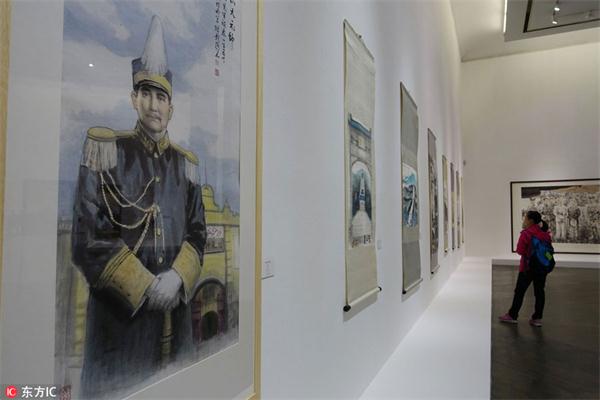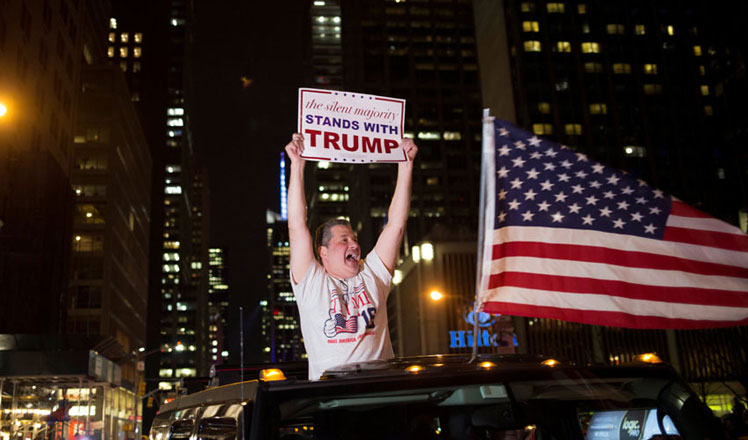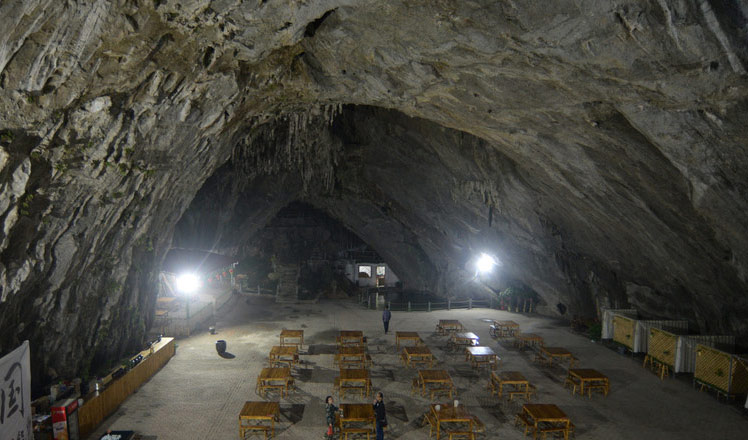Sun's unification efforts a valued legacy
Updated: 2016-11-10 08:25
By Wang Jianmin(China Daily)
|
||||||||
 |
|
A visitor views paintings on display at an exhibition marking Sun Yat-sen's 150th birthday at the Guangdong Museum of Art in South China's Guangzhou city, Guangdong province, Nov 1, 2016. [Photo/IC] |
This Saturday marks the 150th birthday of Sun Yat-sen (1866-1925) when a series of celebrations will be held in the memory of the "great national hero, patriot and front-runner of China's democratic revolution" across the Taiwan Straits. The Chinese mainland has held many seminars and commemorative events before the day, and Hung Hsiu-chu, chairwoman of the opposition Kuomintang in Taiwan, paid tribute to Sun at his mausoleum in Nanjing, East China's Jiangsu province, on Nov 1 during her five-day visit to the mainland.
Born in Zhongshan in South China's Guangdong province, Sun fought for the full national unification and sovereign integrity throughout his life. His outright opposition to separatists is a valued legacy for compatriots across the Straits, especially at a time when pro-independence campaigns are being organized on the island.
The Revolution of 1911 he led ended the feudal monarchy that had existed in China for more than 2,000 years, although it could not end the long-drawn confrontations among several warlords. But despite being threatened by some imperialist powers' preposterous "divide and rule" policy aimed at splitting the country in half, Sun did not succumb to the pressures from home and abroad.
His unwavering belief that the sense of unification in generation after generation of Chinese people had played a major role in keeping the country unified, Sun made strenuous efforts throughout his life to achieve full national unification. He believed there are no uniform patterns to achieve national unification; it could be achieved through either force or by winning the hearts and minds of the people.
His idea was visionary and still applies to cross-Straits relations. The mainland remains firm on its promise to deepen grassroots exchanges with Taiwan and promote peaceful unification, but it strongly opposes so-called pro-independence campaigns in any form and does not renounce the use of force if need be.
This approach is in line with Sun's unfinished work to build a stronger, unified nation, which is the "hope of all Chinese people". The longstanding confrontation between the two sides of the Straits has consumed considerable economic and social resources, making the island a bargaining chip for countries like the United States that often use it to put pressure on the mainland.
Many Taiwan compatriots feel this pain, which has intensified because of the waning cross-Straits exchanges since Tsai Ing-wen, chairwoman of the ruling Democratic Progressive Party, became the island leader in May.
The Chinese Dream will not be realized if separatists keep challenging national sovereignty and integrity. Ignoring this fact, however, a DPP legislator earlier this year proposed that portraits of Sun Yat-sen be removed from schools and government buildings on the island to sever the ties between the mainland and Taiwan and sabotage cross-Straits peace and stability.
Similar moves can be seen in Taiwan again, as Sun's "Three Principles of the People"-Nationalism, Democracy and People's Livelihood-are no longer valued in academic research on the island. This warrants compatriots across the Straits to make extra efforts to restore the image of Sun and respect his historical contributions, and guard against all separatist moves.
The author is a researcher with the Institute of Taiwan Studies at the Chinese Academy of Social Sciences.
- Black humor dots NYC'S Times Square on election day
- Cambodia marks 63rd Independence Day
- Streets are alive with giant fried eggs in Santiago
- Climate Change Conference celebrates Forest Action Day
- Midnight vote in tiny New Hampshire town kicks off
- Swedish prosecutor says Assange interview set for Nov 14

 Technology adds luster to 11.11 shopping festival
Technology adds luster to 11.11 shopping festival
 The 75th anniversary of Red Square parade celebrated
The 75th anniversary of Red Square parade celebrated
 Trump trumps Hillary: Cheers, tears and shock
Trump trumps Hillary: Cheers, tears and shock
 Bi-level bicycle storage in East China's Hangzhou
Bi-level bicycle storage in East China's Hangzhou
 In pics: Dine deep underground in a cave
In pics: Dine deep underground in a cave
 Premier Li visits the State Hermitage Museum
Premier Li visits the State Hermitage Museum
 Hogwarts-like assembly hall attracts visitors
Hogwarts-like assembly hall attracts visitors
 50,000 people set new Guinness square dance record
50,000 people set new Guinness square dance record
Most Viewed
Editor's Picks

|

|

|

|

|

|
Today's Top News
US election rhetoric unlikely to foreshadow future US-China relations
'Zero Hunger Run' held in Rome
Trump outlines anti-terror plan, proposing extreme vetting for immigrants
Phelps puts spotlight on cupping
US launches airstrikes against IS targets in Libya's Sirte
Ministry slams US-Korean THAAD deployment
Two police officers shot at protest in Dallas
Abe's blame game reveals his policies failing to get results
US Weekly

|

|









